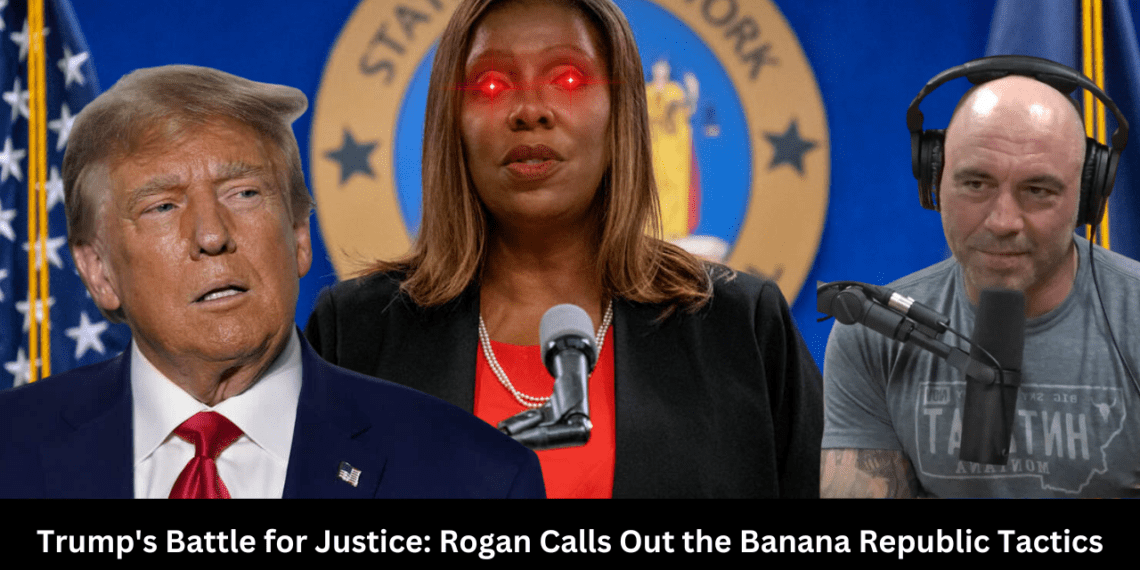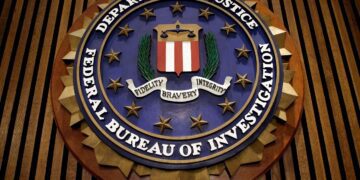In the midst of turbulent political and judicial landscapes, the voice of Joe Rogan emerges not just as a commentary, but as a clarion call echoing the sentiments of millions of Americans who find themselves bewildered by the current state of affairs. Amidst the whirlwind of legal challenges faced by former President Donald Trump, Rogan’s perspective sheds light on an issue that transcends mere politics, touching the very core of American justice and fairness.
At the heart of Rogan’s criticism is the series of indictments against Trump, which he boldly compares to practices observed in banana republics—where the machinery of justice is often wielded as a weapon against political adversaries rather than a tool for upholding the law. The focus of his critique, New York Attorney General Letitia James and Fulton County District Attorney Fani Willis, raises profound questions about the true motives behind their actions. Is the pursuit of justice being compromised by political vendettas?
Rogan’s skepticism is not unfounded. The legal battles against Trump, particularly the staggering $454 million judgment in a New York fraud case, underscore a scenario where the scales of justice seem perilously tilted. The inability of Trump to secure a bond for appealing the judgment, as his lawyers have indicated, paints a picture of an unprecedented legal quagmire, suggesting an ulterior motive aimed at crippling his financial capabilities and tarnishing his political future.
This legal odyssey does not merely represent an individual’s struggle but signifies a broader concern about the sanctity of the American judicial system. When a figure like Joe Rogan, renowned for his forthright and unfiltered discourse, raises alarms over the potential misuse of legal authority for political gains, it is a moment that demands reflection. The resonance of his words with a vast segment of the American populace reflects a deep-seated apprehension about the erosion of fairness and objectivity in the realm of law and governance.
Moreover, Rogan’s allusion to comments by figures like Kevin O’Leary about the chilling effect these legal proceedings could have on the business environment in New York highlights another dimension of the issue. The implication that such legal entanglements could deter real estate development and investment in the state is a testament to the far-reaching consequences of what many perceive as a politicized prosecution.
The narrative of Letitia James’ actions, characterized by Rogan and others as marred by political motivations, raises critical questions about the integrity of the judicial process. The imposition of a hefty fine, coupled with restrictions on Trump’s business activities, without a clear victim in the fraud case, strikes many as a punitive measure rather than a quest for justice. The daily tally of compounding interest on the judgment by James, seen by some as a form of taunting, only adds fuel to the fire of those who view this as a personal vendetta rather than an impartial legal proceeding.
In the eyes of supporters and even neutral observers, the saga unfolding around Trump’s legal challenges serves as a stark reminder of the potential for the justice system to be manipulated by those in power. The relentless pursuit of Trump, with seemingly disproportionate zeal, has led many to question whether the principles of justice and fairness still hold sway in today’s America.
As Rogan aptly points out, the essence of the matter extends beyond the individual at its center. It touches upon the fundamental values that underpin the American judicial system and democracy itself. The question that looms large is whether the pursuit of political opponents through the courts will become the new norm, eroding trust in the institutions meant to safeguard the rights and freedoms of all Americans.









